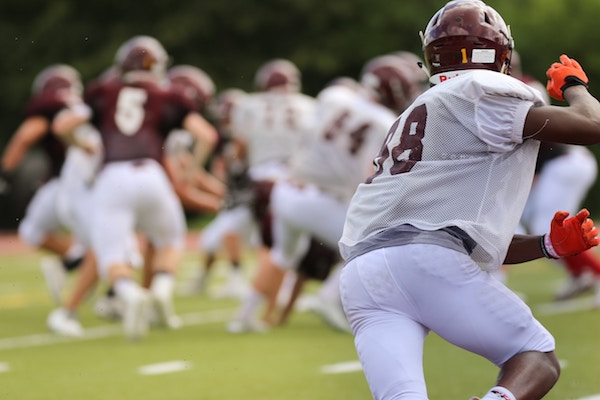What is Post-Concussion Syndrome (PCS)?
Post-Concussion Syndrome (PCS) is a sequela of minor head injury. A minor head injury typically is a blow to the head resulting in a concussion or brain injury with a brief period of loss of consciousness or post-traumatic amnesia or disorientation.
The overall incidence rate of minor head trauma for persons not hospitalized, with data compiled by the National Hospital Ambulatory Medical Care Survey, was 1,367,101 visits per year to hospital EDs in the United States. Approximately 50% of patients with minor head injury have symptoms of post-concussion syndrome at 1 month and 15% have symptoms at 1 year. The number of patients who sustain minor head injury and do not present for medical care is unknown, therefore the number of patients with post-concussive syndrome is likely significantly under diagnosed.
Post-Concussion Syndrome Symptoms
The most commonly reported post concussive symptoms are headache, dizziness, decreased concentration, memory problems, irritability, fatigue, visual disturbances, sensitivity to noise, judgment problems, depression, and anxiety. Although these post-concussive symptoms often resolve within a month, in some individuals these symptoms can persist from months to years following injury and may even be permanent. When symptoms of post-concussion are persistent, it is called the post concussion syndrome or PCS.
The ICD-10 diagnostic criteria for post-concussion syndrome include history of traumatic brain injury (TBI) and the presence of 3 or more of the following 8 symptoms: (1) headache, (2) dizziness, (3) fatigue, (4) irritability, (5) insomnia, (6) concentration or (7) memory difficulty, and (8) intolerance of stress, emotion, or alcohol.
Post-Concussion Treatment
Mild traumatic brain injury (mild TBI) recovery can be a slow and laborious process in some patients. The best way to get better after a head injury is to start rehabilitation sooner than later. In brain injury rehabilitation center, a team of health care professionals work with you to regain skills you lost as the result of the head injury.
Transcranial magnetic stimulation (TMS) has shown promise in treatment of brain injury after stroke and is being actively researched in patients with traumatic brain injury. In the subacute stage of brain injury, TMS affects salvageable lesioned neural circuits to improve symptoms.
TMS and Brain Rehabilitation
Transcranial Magnetic Stimulation (TMS) is a noninvasive brain stimulation technique that can increase or reduce excitability in specific regions of the brain that have been affected by the brain injury to improve brain function. Using magnetic stimulation on regions of the brain that have been damaged in an injured brain has been shown to successfully improve symptoms. TMS therapy should be employed in conjunction with conventional therapies like psychological and physical therapy for best results.
At Brain TMS center our neurologists analyze and evaluate each patient individually and formulate a treatment protocol to help relieve the symptoms of post concussion syndrome on an individual basis.

Transcranial magnetic stimulation: potential treatment for co-occurring alcohol, traumatic brain injury and posttraumatic stress disorders.
Neural Regeneration Research. v.9(19); 2014 Oct 1. PMC4238159
The authors conluded that there is evidence that high frequency rTMS alters gamma oscillations in the DLPFC which are mediated throug GABA… Furthermore, rTMS alters brain-derived neurotrophic factor (BDNF) which plays a role in plasticity and may promote a more healthy neural environment. This information does not provide the empirical evidence necessary to fully understand the neurophysiological mechanism of rTMS. However, this as well as the neurobiological findings detailed in this section provides us enough evidence to postulate that high frequency (above 5 Hz), supra-threshold (above 100% MT) stimulation applied to the right DLPFC holds promise. An excitatory rTMS protocol could modulate dopamine and glutamate altered in addiction, excite projections to the amygdala that could reduce the stress response and promote a healthy neural environment that could improve recovery following brain injury.
NOTICE TO PATIENTS OPEN PAYMENTS DATABASE
For informational purposes only, a link to the federal Centers for Medicare and Medicaid Services (CMS) Open Payments web page is provided here. The
federal Physician Payments Sunshine Act requires that detailed information
about payment and other payments of value worth over ten dollars ($10) from
manufacturers of drugs, medical devices, and biologics to physicians and
teaching hospital be made available to the public.
You may search this federal database for payments made to
physicians and teaching hospitals by visiting this website:
https://openpaymentsdata.cms.gov/

